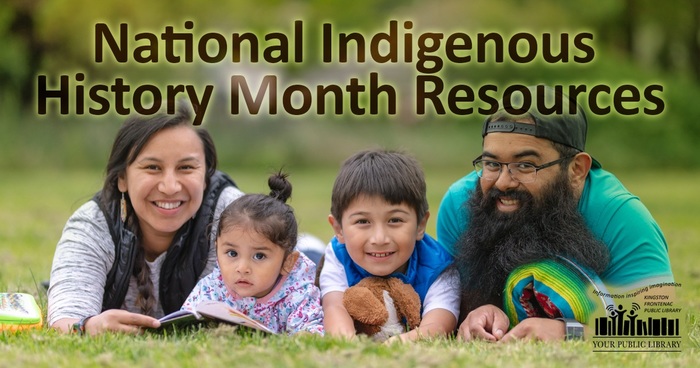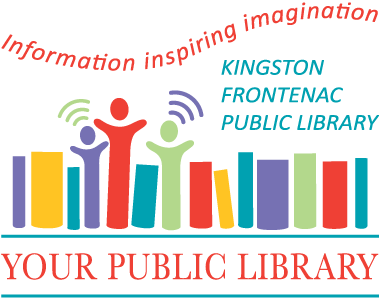
Celebrate, commemorate and learn about the contributions of Indigenous communities through KFPL's digital and print collections. Check out this list and reserve a print copy, or download a title from CloudLibrary.
Split Tooth, by Tanya Tagag
A girl grows up in Nunavut in the 1970s. She knows joy and love. She knows boredom and bullying. She knows the tedium of the everyday and the seductive energy of the animal world. She knows the ravages of alcohol and violence. When she becomes pregnant, she must navigate all this. Veering between the grittiest features of a small arctic town, the electrifying proximity of the animal world and the ravishing world of myth, Tanya Tagaq explores a world where the distinctions between good and evil, animal and human, real and imagined lose their meaning, but the guiding power of love remains.
Symbolism in Indigenous Arts and Cultures
This introductory title explores the symbolism found in Indigenous arts and culture and how it's used as a form of communication.
In My Own Mocassins by Helen Knott
A nationally bestselling book on the struggle of addiction and the power of Indigenous resilience. Helen Knott, a highly accomplished Indigenous woman, seems to have it all. But in her memoir, she offers a different perspective. In My Own Moccasins is an unflinching account of addiction, intergenerational trauma, and the wounds brought on by sexual violence. It is also the story of sisterhood, the power of ceremony, the love of family, and the possibility of redemption.
Fry Bread by Kevin Noble Maillard
Fry bread is food.It is warm and delicious, piled high on a plate. Fry bread is time.It brings families together for meals and new memories. Fry bread is nation.It might look or taste different, but it is still shared by many, from coast to coast and beyond. Fry bread is us.It is a celebration of old and new, traditional and modern, similarity and difference.
77 Fragments of Familiar Ruin by Thomas King
Seventy-seven poems intended as a eulogy for what we have squandered, a reprimand for all we have allowed, a suggestion for what might still be salvaged, a poetic quarrel with our intolerant and greedy selves, a reflection on mortality and longing, as well as a long-running conversation with the mythological currents that flow throughout North America.
From the Ashes by Jesse Thistle
In this extraordinary and inspiring debut memoir, Jesse Thistle, once a high school dropout and now a rising Indigenous scholar, chronicles his life on the streets and how he overcame trauma and addiction to discover the truth about who he is.If I can just make it to the next minute...then I might have a chance to live; I might have a chance to be something more than just a struggling crackhead.From the Ashes is a remarkable memoir about hope and resilience, and a revelatory look into the life of a Métis-Cree man who refused to give up.
The Orange Shirt Story by Phyllis Webstad
When Phyllis Webstad (nee Jack) turned six, she went to the residential school for the first time. On her first day at school, she wore a shiny orange shirt that her Granny had bought for her, but when she got to the school, it was taken away from her and never returned. This is the true story of Phyllis and her orange shirt. It is also the story of Orange Shirt Day (an important day of remembrance for First Nations and non First Nations Canadians).
First Nations
The Royal Canadian Geographical Society, in partnership with Canada's national Indigenous organizations, has created a groundbreaking four-volume atlas that shares the experiences, perspectives, and histories of First Nations, Inuit and Métis peoples. It's an ambitious and unprecedented project inspired by the Truth and Reconciliation Commission's Calls to Action.
Indigenous Canada
The Royal Canadian Geographical Society, in partnership with Canada's national Indigenous organizations, has created a groundbreaking four-volume atlas that shares the experiences, perspectives, and histories of First Nations, Inuit and Métis peoples. It's an ambitious and unprecedented project inspired by the Truth and Reconciliation Commission's Calls to Action.
Inuit
The Royal Canadian Geographical Society, in partnership with Canada's national Indigenous organizations, has created a groundbreaking four-volume atlas that shares the experiences, perspectives, and histories of First Nations, Inuit and Métis peoples. It's an ambitious and unprecedented project inspired by the Truth and Reconciliation Commission's Calls to Action.
Métis
The Royal Canadian Geographical Society, in partnership with Canada's national Indigenous organizations, has created a groundbreaking four-volume atlas that shares the experiences, perspectives, and histories of First Nations, Inuit and Métis peoples. It's an ambitious and unprecedented project inspired by the Truth and Reconciliation Commission's Calls to Action.
NDN Coping Mechanisms by Billy-Ray Belcourt
In the follow-up to his Griffin Poetry Prize-winning collection, This Wound is a World, Billy-Ray Belcourt writes using the modes of accusation and interrogation. He aims an anthropological eye at the realities of everyday life to show how they house the violence that continues to reverberate from the long twentieth century. In a genre-bending constellation of poetry, photography, redaction, and poetics, Belcourt ultimately argues that if signifiers of Indigenous suffering are everywhere, so too is evidence of Indigenous peoples' rogue possibility, their utopian drive.
Indigenous Writes: A Guide to First Nations, Métis & Inuit Issues in Canada by Chelsea Vowel
In Indigenous Writes, Chelsea Vowel, legal scholar, teacher, and intellectual, opens an important dialogue about the wider social beliefs associated with the relationship between Indigenous peoples and Canada. In 31 essays, Chelsea explores the Indigenous experience from the time of contact to the present, through five categories--Terminology of Relationships; Culture and Identity; Myth-Busting; State Violence; and Land, Learning, Law, and Treaties. She answers the questions that many people have on these topics to spark further conversations at home, in the classroom, and in the larger community.
A Mind Spread Out On the Ground by Alicia Elliott
A bold and profound meditation on trauma, legacy, oppression and racism in North America from award-winning Haudenosaunee writer Alicia Elliott. In an urgent and visceral work that asks essential questions about the treatment of Native people in North America while drawing on intimate details of her own life and experience with intergenerational trauma, Alicia Elliott offers indispensable insight into the ongoing legacy of colonialism.
Peace and Good Order by Harold R. Johnson
An urgent, informed, intimate condemnation of the Canadian state and its failure to deliver justice to Indigenous people by national bestselling author and former Crown prosecutor Harold R. Johnson."The night of the decision in the Gerald Stanley trial for the murder of Colten Boushie, I received a text message from a retired provincial court judge. He was feeling ashamed for his time in a system that was so badly tilted. I too feel this way about my time as both defence counsel and as a Crown prosecutor; that I didn't have the courage to stand up in the court room and shout 'Enough is enough.' This book is my act of taking responsibility for what I did, for my actions and inactions."
Heart Berries by Terese Mailhot
Guileless and refreshingly honest, Terese Mailhot's debut memoir chronicles her struggle to balance the beauty of her Native heritage with the often desperate and chaotic reality of life on the reservation.Heart Berries is a powerful, poetic memoir of a woman's coming of age on the Seabird Island Indian Reservation in British Columbia. Having survived a profoundly dysfunctional upbringing only to find herself hospitalized and facing a dual diagnosis of Post Traumatic Stress Disorder and Bipolar II, Terese Mailhot is given a notebook and begins to write her way out of trauma.
Hope Matters by Lee Maracle et al
Hope Matters, written by multiple award-winning author Lee Maracle and her daughters Columpa Bobb and Tania Carter, focuses on the journey of Indigenous people from colonial beginnings to reconciliation. Maracle states that the book "is also about the journey of myself and my two daughters."
Mamaskatch by Darrel J. McLeod
The author recounts his childhood growing up in the tiny village of Smith, Alberta. His mother, Bertha, shared narratives of their culture, their family and the cruelty that she and her sisters endured in residential school. Bertha taught Darrel to be proud of his heritage. But in a series of tragic events, Darrel's mother became unstable, and their home life became chaotic. Sweet and innocent by nature, Darrel struggled to maintain his grades, while changing homes many times, witnessing violence, caring for his younger siblings and suffering abuse at the hands of his surrogate father.
Treaty # by Armand Garnet Ruffo
A treaty is a contract. A treaty is enduring. A treaty is an act of faith. A treaty at its best is justice. It is a document and an undertaking. It is connected to place, people and self. It is built on the past, but it also indicates how the future may unfold. Armand Garnet Ruffo's TREATY # is all of these.
Little You = Kîya-k'apisîsisîyân by Richard Van Camp
With its delightful contemporary illustrations, Little You is perfect to be shared, read or sung to all the little people in your life--and the new little ones on the way!
Blanket Toss Under Midnight Sun by Paul Seesequasis
In 2015, writer and journalist Paul Seesequasis found himself grappling with the devastating findings of Canada's Truth and Reconciliation Commission report on the residential school system. He sought understanding and inspiration in the stories of his mother, herself a residential school survivor. Gradually, Paul realized that another, mostly untold history existed alongside the official one: that of how Indigenous peoples and communities had held together during even the most difficult times. He embarked on a social media project to collect archival photos capturing everyday life in First Nations, Metis and Inuit communities from the 1920s through the 1970s. As he scoured archives and libraries, Paul uncovered a trove of candid images and began to post these on social media, where they sparked an extraordinary reaction.
Seven Fallen Feathers by Tanya Talaga
The shocking true story covered by the Guardian and the New York Times of the seven young Indigenous students who were found dead in a northern Ontario city. Tanya Talaga delves into the history of Thunder Bay that has come to manifest Canada's long struggle with human rights violations against Indigenous communities.
The North-West is Our Mother by Jean Teillet
After being defeated at the Battle of Batoche in 1885, the Métis lived in hiding for twenty years. But early in the twentieth century, they determined to hide no more and began a long, successful fight back into the Canadian consciousness. The Métis people are now recognized in Canada as a distinct Indigenous nation. Written by the great-grandniece of Louis Riel, this popular and engaging history of "forgotten people" tells the story up to the present era of national reconciliation with Indigenous peoples.
Disintegrate/dissociate by Arielle Twist
In her powerful debut collection of poetry, Arielle Twist unravels the complexities of human relationships after death and metamorphosis. In these spare yet powerful poems, she explores, with both rage and tenderness, the parameters of grief, trauma, displacement, and identity.
Gaawin Gindaaswin Ndawsii = I Am Not a Number by Jenny Kay Dupuis
When eight-year-old Irene is removed from her First Nations family to live in a residential school she is confused, frightened and homesick. She tries to remember who she is and where she came from despite the efforts of the nuns to force her to do otherwise.
River Woman by Katherena Vermette
Governor General's Award-winning Métis poet and acclaimed novelist Katherena Vermette's second work of poetry, river woman, examines and celebrates love as postcolonial action. Here love is defined as a force of reclamation and repair in times of trauma, and trauma is understood to exist within all times.
My Heart Fills With Happiness by Monique Gray Smith
A board book celebrating joy as children reflect on the little things in life that make them happy.
One Drum by Richard Wagamese
A collection of four ceremonies inspired by the foundational teachings of Ojibway tradition and designed to help people heal themselves and connect to the world around them.
We Sang You Home by Richard Van Camp
Celebrates every child and the joy babies bring to the world.
Unsettling Canada by Arthur Manuel
Arthur Manuel describes the victories and failures, the hopes and the fears of a generation of activists fighting for Aboriginal title and rights in Canada. Unsettling Canada chronicles the modern struggle for Indigenous rights covering fifty years of struggle over a wide range of historical, national, and recent international breakthroughs.
The Inconvenient Indian by Thomas King
A critical and personal meditation on what it means to be a Native American in North America.
Mamaqtuq! by Jerry Cans
One beautiful spring morning, a group of friends go seal hunting so they can make a delicious stew. Hungry and tired, they begin to think they'll have to give up . . . until they finally spot a seal!





































